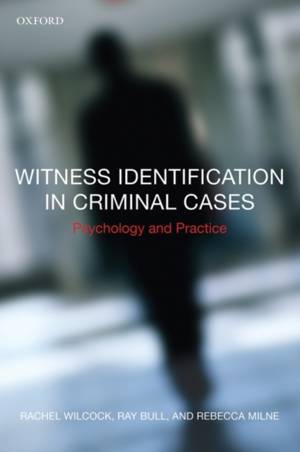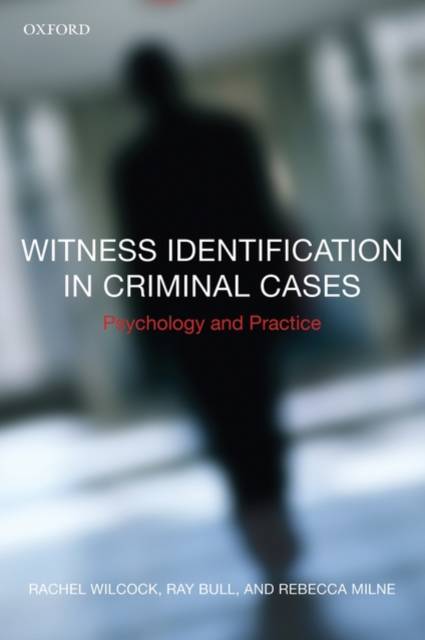
- Retrait gratuit dans votre magasin Club
- 7.000.000 titres dans notre catalogue
- Payer en toute sécurité
- Toujours un magasin près de chez vous
- Retrait gratuit dans votre magasin Club
- 7.000.0000 titres dans notre catalogue
- Payer en toute sécurité
- Toujours un magasin près de chez vous
Witness Identification in Criminal Cases
Psychology and Practice
Rachel Wilcock, Ray Bull, Rebecca Milne
Livre broché | Anglais
75,95 €
+ 151 points
Description
Witness Identification provides an up-to-date review on identifying crime perpetrators based on psychological theory and research. Applying psychology to the area of criminal identification, the authors make reference to relevant legislation such as the PACE Codes of Practice as they explore the psychology involved in identification. This insightful and practical title will inform anyone interested in this area. The authors outline the psychological information relevant to constructing and delivering identification parades, such as the point of view of the suspect and witness or victim, how witnesses remember, and the factors likely to affect the accuracy of person descriptions. They also consider the effects of stereotypes and expectancies on identification performance, as well as a discussion of the technologies involved in identification procedure. The book includes a chapter on how to assist people who are deemed vulnerable in order to elicit accurate identification evidence. It also looks at other methods of identification in addition to face identification, such as methods to identify a person's voice and gait. By providing an overview of legislation and guidelines to conducting identity parades alongside a psychological underpinning, this book is a valuable resource to anyone whose work involves identification procedures, as well as students of psychology, law and police studies.
Spécifications
Parties prenantes
- Auteur(s) :
- Editeur:
Contenu
- Nombre de pages :
- 222
- Langue:
- Anglais
Caractéristiques
- EAN:
- 9780199216932
- Date de parution :
- 15-11-08
- Format:
- Livre broché
- Format numérique:
- Trade paperback (VS)
- Dimensions :
- 155 mm x 231 mm
- Poids :
- 340 g

Les avis
Nous publions uniquement les avis qui respectent les conditions requises. Consultez nos conditions pour les avis.






